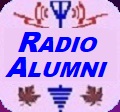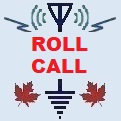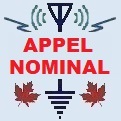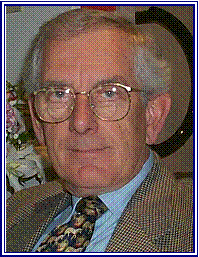|
|
RADIOALUMNI.CA |
|
|
CANADIAN EPICS IN RADIOCOMMUNICATION ALUMNI WHO LIVED THE ADVENTURE OF RADIO WIRELESS TELEGRAPHISTS - SPARKS - RADIO PIONEERS RADIO OPERATORS - RADIO TECHNICIANS RADIO TECHNOLOGISTS - RADIO ENGINEERS RADIO INSPECTORS - SPECTRUM MANAGERS |
|
ÉPOPÉES CANADIENNES EN RADIOCOMMUNICATION LES ANCIENS QUI ONT VÉCU L'AVENTURE DE LA RADIO TÉLÉGRAPHISTES SANS FIL - PIONNIERS DE LA RADIO OPÉRATEURS RADIO - TECHNICIENS RADIO TECHNOLOGUES RADIO - INGÉNIEURS RADIO INSPECTEURS RADIO - GESTIONNAIRES DU SPECTRE |
After a brief career in a new
counter-intelligence group in the Signal Corps Maurice left the army and was
almost immediately recruited into Signals Intelligence (SIGINT) as a civilian
research officer in 1963. This was the time of the cold war and for the next
eleven years Maurice was actively engaged in ferreting out enemy operatives
both in
Maurice was also a frequent visitor to the Strategic Air Command base in Thule Greenland where he met many of the flyers who spent long hours in B52 bombers patrolling the Arctic skies prepared for pre-emptive strikes should the enemy become belligerent.
They were frightening times but when tempers cooled in 1974
and the planet survived Maurice left to join the Department of Communications
(DOC).
Faced with new challenges, Maurice worked in the
operations group at DOC headquarters where his role included frequency
selection, technical analysis, frequency coordination and database auditing.
One of his more demanding responsibilities was liaising with his counterparts
in the Federal Communications Commission and the Interdepartmental Radio
Advisory Council in
Just prior to
national expansion of the Assignment and Licensing System (ALS) in the winter
of 1980/81 Maurice decided to move to exciting new challenges of coordinating
operations in the newly formed Automated Applications Directorate. It was in
this role that he finally met those in the regions whom he knew only by voice.
As Chair of many national conferences Maurice traveled across
The Department began downsizing activities in the mid
1990’s where incentives were offered to those who had the right numbers to take
early retirement. So after more than 28 years with the Department Maurice and
his family was treated to a fancy lunch by his friends and colleagues and given
a golden handshake in 1995.
A year later, Maurice was asked to join Spectrocan, a
Canadian company who markets Canadian spectrum management technology to
developing countries. In a consulting capacity he took a two-year assignment to
When Maurice isn’t traveling he likes to spend his
summers at one of his favorite places, Trident Yacht Club, sailing the St.
Lawrence and
|
|||||||||||||||
|
Links - Liens
A Brief History of Radio Spectrum Management in Canada from the early 1970's Leading Up to Computer Automation in the Early 1980s
Automated Applications Directorate (DAA) in 1993
|
|||||||||||||||





 Maurice Drew grew up in
Maurice Drew grew up in